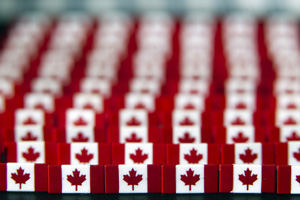
Investors looking for good news for the Canadian and U.S economies will have to wait, according to economists speaking at the Portfolio Manager Association of Canada’s (PMAC) 2012 annual conference and annual general meeting on Thursday.
“Usually, it’s at this time of year that as a Leaf’s fan you start to say: “Well, we’re not going to make the playoffs but we’ll get some good draft picks, so wait until next year,” said Avery Shenfeld, managing director and chief economist, CIBC World Markets, speaking in Toronto. “And with the economy we’re starting to wonder: when is the global economy going to actually do materially better than the ho-hum case we’ve had for the last several years?”
Global growth should be around 4% in 2014, according to Shenfeld, which is still a little below the 5% of pre-2008 but better than recent years. Shenfeld says that growth could even start to pick up in the latter half of 2013. Closer to home, while the decline in Canadian housing prices is a concern, said Shenfeld, a boost in prices to cyclical commodities such as copper, oil and industrials will lift the Canadian market. As a result, Shenfeld predicts growth of 2.5% in 2014.
Paul Ashworth, chief U.S economist at Capital Economics, says in the coming years Canadians will have to swallow their pride about coming out of the global recession relatively unscathed. The recent decline in housing prices, the increase in debt to disposable income and the necessary increase in savings Canadians require to get rid of debt will all dampen economic growth. According to Ashworth, Canadians can only expect to see GDP of about 1.5% in 2013 and 1.4% in 2014.
Looking south of the border, the chance that the government will actually take the economy over the fiscal cliff is unlikely, according to Shenfeld. “They’re pretty stupid politically in Washington,” he said, “but they’re not that stupid.” Instead, a deal is likely to be reached in December or January to postpone at least some of the tax increases and spending cuts. The problem, said Shenfeld, is that even the few tax and spending policies that do get through are likely to dampen economic growth in 2013 to about 2% or less.
However, these tax increases and spending cuts are only a short-term concern. In 2014, Shenfeld expects American consumers to finally take advantage of low interest rates and start spending on retail goods and home renovations. As such, Shenfeld anticipates the U.S economy to grow above 3% in 2014.
To Ashworth, the outlook for the U.S isn’t quite so rosy. Whether the fiscal cliff is avoided or not, Ashworth sees the U.S heading into a recession. While retail spending increased over the summer, he said, the manufacturing sector has decreased. As such, the U.S can only expect about 2.5% growth in 2014.